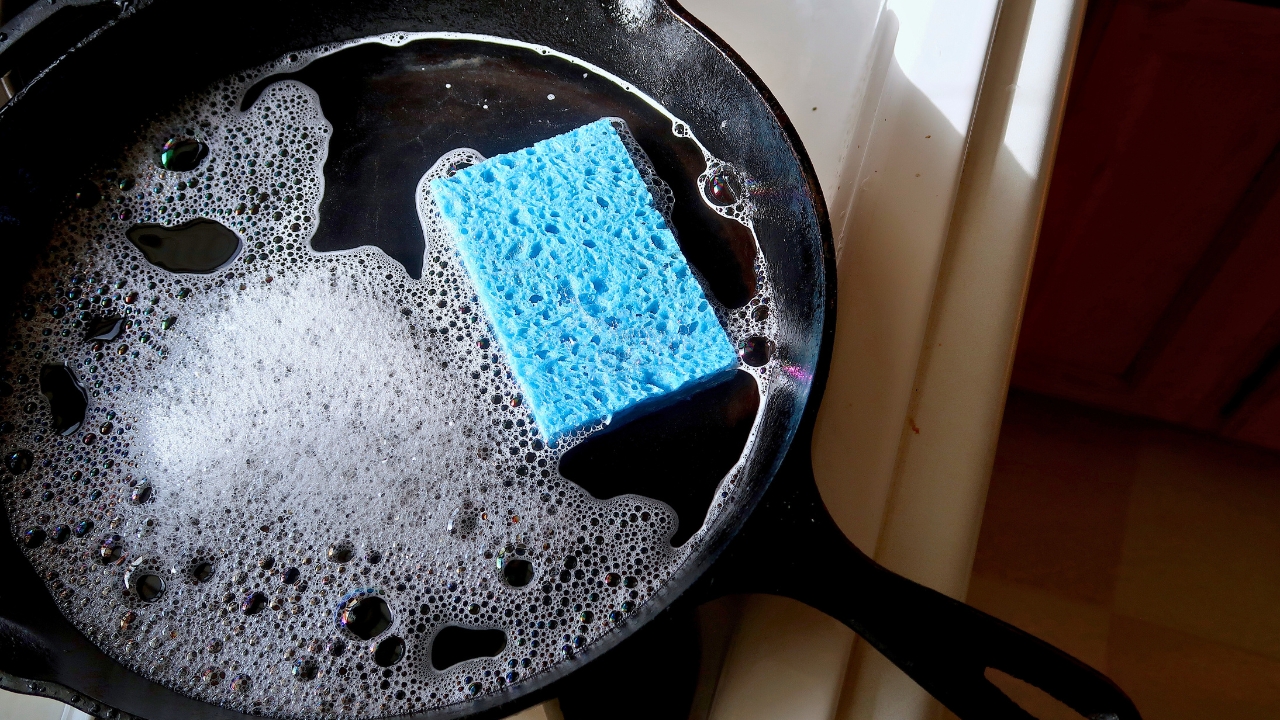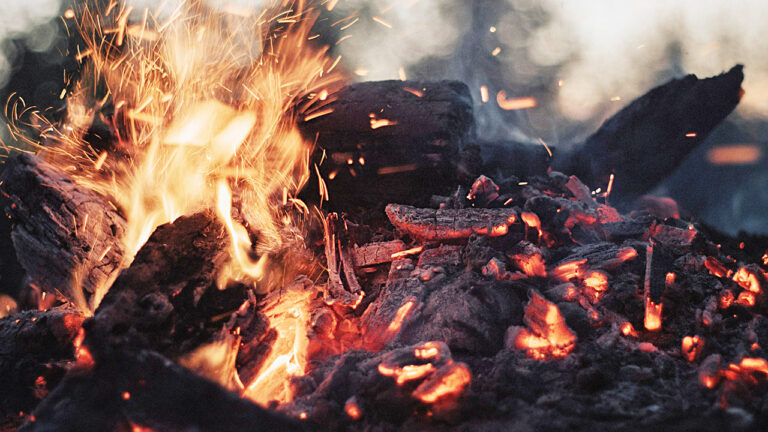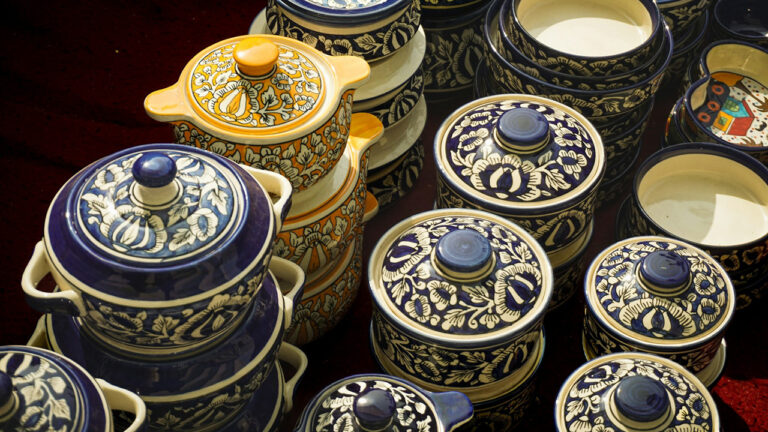9 Things You Should Never Use to Clean a Cast Iron Skillet
Taking care of a cast iron skillet isn’t complicated, but it does come with a few hard rules. If you use the wrong cleaning tools or products, you can ruin the seasoning, strip it down to raw iron, or even cause it to rust. Most of the damage comes from using things that seem harmless but are too harsh or too wet.
Here’s what to avoid if you want your skillet to actually last.
Steel Wool Pads

Those brillo-style steel wool pads are way too aggressive for cast iron. They’ll tear through the seasoning fast, leaving you with a dull, gray pan that food will stick to.
If your skillet has burnt-on gunk, try using kosher salt and a bit of oil instead. It’ll scrub off residue without ruining the nonstick layer you’ve worked hard to build up.
Dish Soap

Most dish soaps are made to strip grease, which is exactly what your cast iron seasoning is made of. Over time, that adds up to a patchy surface that doesn’t cook evenly.
A quick rinse with hot water and a firm scrub with a brush or chainmail cleaner is usually enough. Save the soap for your nonstick pans and baking sheets.
The Dishwasher

Never, ever put your cast iron skillet in the dishwasher. The detergent is harsh, and the soaking cycle can destroy seasoning and cause rust to set in.
Even one run can undo years of seasoning work. Always wash cast iron by hand and dry it right away.
Soaking in Water
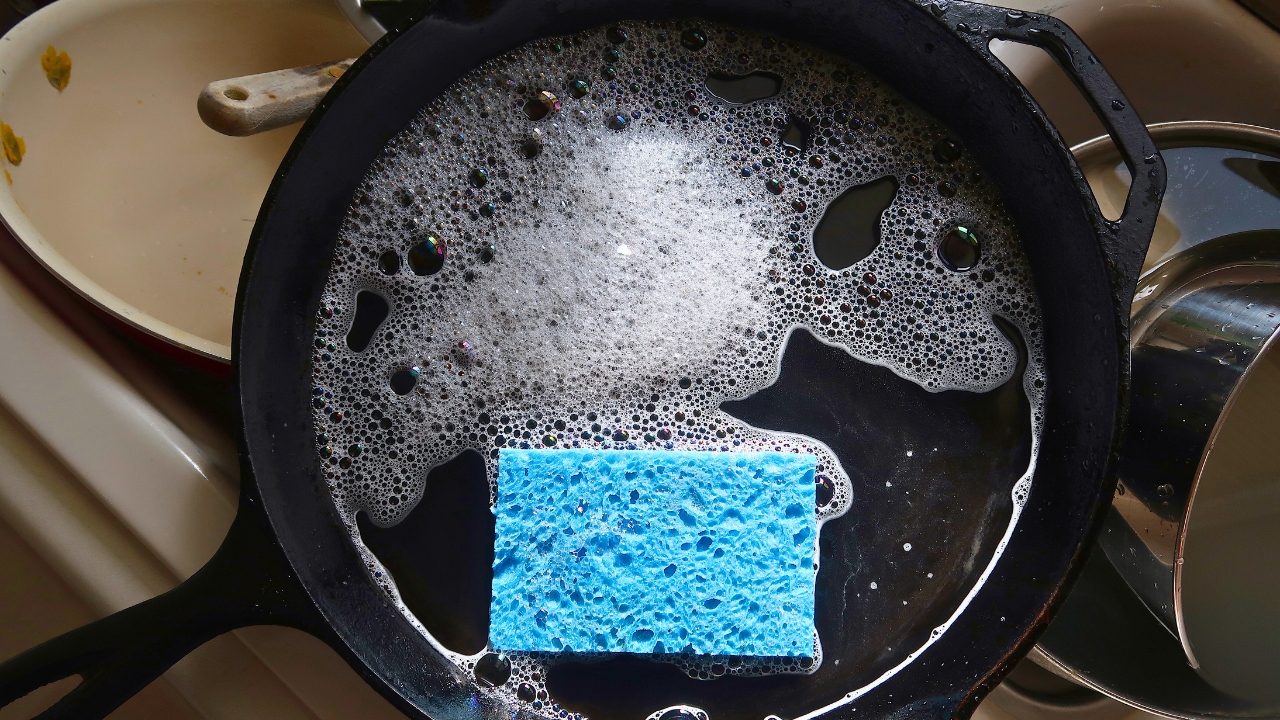
Leaving a cast iron pan in the sink “to soak” is a recipe for rust. It doesn’t take long for water to break down the protective seasoning layer and start eating away at the metal.
If food is stuck, heat the pan up a bit on the stove and use a spatula or scraper while it’s warm. It usually loosens right up without needing a soak.
Oven Cleaner

Oven cleaner is way too strong for cast iron. It’s full of harsh chemicals that can ruin the seasoning and make the pan unsafe to cook in until it’s fully stripped and reseasoned.
If you need to deep clean your skillet, use a paste of baking soda and water, or re-season it in the oven with a light coat of oil after cleaning.
Nonstick Spray

It might seem harmless, but nonstick sprays can leave behind a sticky residue that gums up the pan and burns unevenly. That buildup is hard to scrub off without damaging the seasoning.
Stick with oils that can handle high heat—like avocado oil, grapeseed oil, or classic Crisco—for seasoning or cooking.
Vinegar

Vinegar is acidic, which makes it great for cleaning a lot of things—but not cast iron. It’ll break down the seasoning and leave behind a dull surface that’s more prone to rust.
A splash of vinegar is fine in a recipe, but don’t use it for cleaning unless you’re doing a full strip and re-season from scratch.
Baking Soda (for Daily Cleaning)

Baking soda might seem like a good idea, but it can be too abrasive for daily use. It also has a slight reaction with cast iron that can dull the surface over time.
Save baking soda for deep cleans when needed, not everyday scrubbing. Most messes come off fine with hot water and a firm brush.
Paper Towels to Dry It
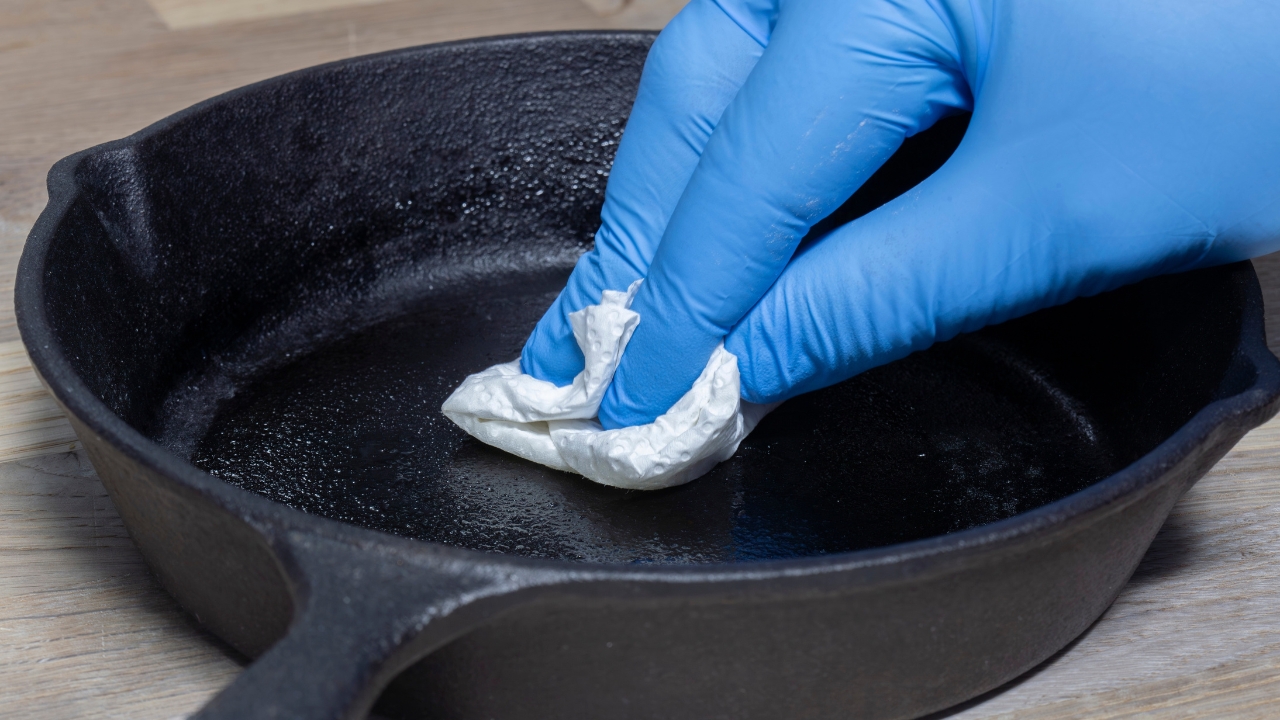
You’d think drying it with paper towels is the easiest way, but they can leave behind lint that sticks to the oil and gets baked into the seasoning.
Use a clean cloth or rag instead. After drying, warm the skillet on the stove to fully evaporate any moisture, then lightly oil it to keep the surface protected.
*This article was developed with AI-powered tools and has been carefully reviewed by our editors.

